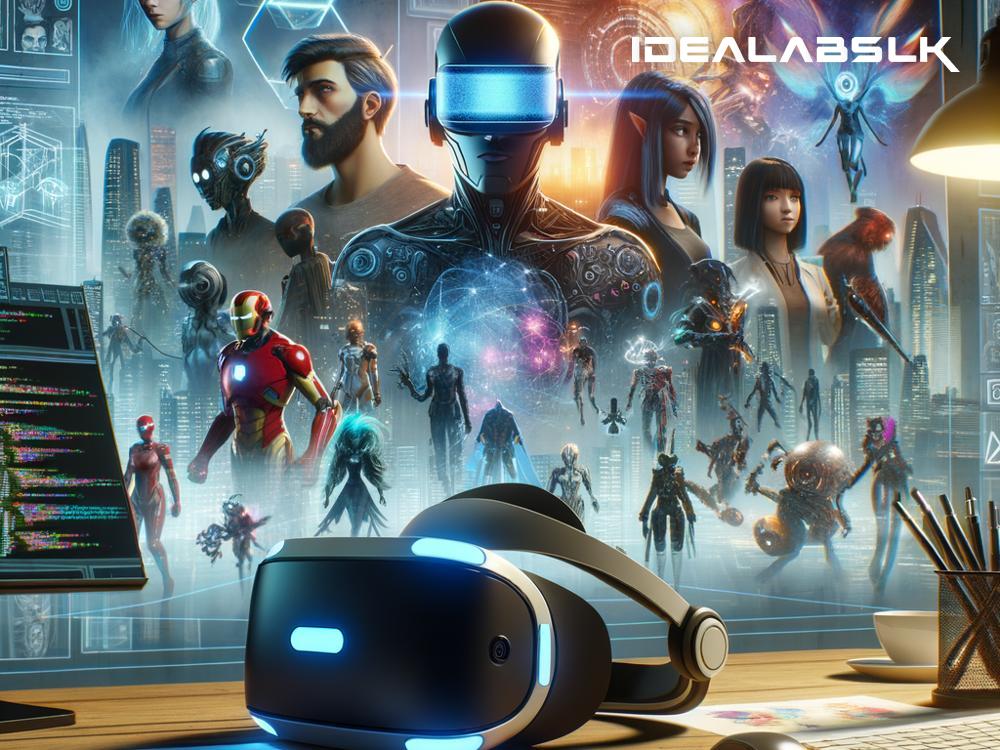The Future of Story-Driven Games in 2024: How AI Will Enhance Narratives
In the fast-paced world of video games, storytelling has grown from simple "save the princess" missions to complex narratives that rival those of movies and novels. Looking ahead to 2024, the future of story-driven games is on the brink of a revolution, thanks to the rapid advancements in artificial intelligence (AI). This isn't about AI taking the reins from human creativity; instead, it's about AI enhancing and amplifying the stories game developers can tell. Let's explore how AI is poised to transform narratives in gaming and make story-driven games even more immersive and engaging.
1. Personalized Stories
Imagine playing a game where the story adapts to your choices, not just through pre-determined paths, but in dynamic and nuanced ways that feel genuinely responsive to your actions. AI is making this possible. In 2024, we can expect games that use AI to analyze your play style and decisions, adjusting the narrative to deliver a personalized story experience. No two playthroughs would be the same, making each player's journey unique. This means the shy, strategic player and the bold, direct player could have vastly different stories in the same game, based on their decisions and actions.
2. More Realistic Characters
Characters in video games are evolving from mere digital puppets to entities that seem to think and feel. AI is at the forefront of this evolution. Through natural language processing and emotional intelligence algorithms, AI can enable game characters to have conversations and exhibit emotional reactions that are much more nuanced and realistic. These characters can remember past interactions and respond accordingly, making your connection with them more profound. In 2024, expect to meet game characters that feel like real individuals, with personalities, fears, hopes, and dreams, enriching the narrative depth of games.
3. Creative Storytelling
AI is not just enhancing predetermined stories; it’s also becoming a co-creator, helping to generate content on the fly. This means that game writers and developers can input basic story elements into an AI system, which can then elaborate on these elements to create rich, complex worlds and backstories. This collaboration between human creativity and AI can lead to storytelling possibilities that were previously unimaginable due to time or resource constraints. In 2024, we might see games with storylines that are partially written by AI, resulting in narratives that are both intricate and captivating.
4. Evolving Game Worlds
The settings where games take place are also benefiting from AI. Instead of static worlds, imagine environments that evolve based on your actions in the game. If you decide to help a village thrive, you could come back to find it has grown into a bustling town. Conversely, neglecting certain aspects could lead to decay. AI can manage these changes in the game world, ensuring that your actions have lasting impacts. By 2024, story-driven games will likely feature ever-changing worlds, making each player's experience not just unique but also deeply impactful.
5. Seamless Narratives Across Sessions
One of the challenges in current story-driven games is maintaining narrative coherence over multiple play sessions. AI can help solve this by providing seamless narrative continuity. It can remind players of key plot points and character developments at the start of each session, ensuring they're always engaged with the story, no matter how complex. This makes it easier for players to dive back into the game's world, enhancing overall immersion and enjoyment.
The Human Touch
While AI's role in enhancing narratives is undeniable, it's essential to remember that the heart and soul of storytelling lie in human emotions and experiences. AI serves as a tool to amplify this human creativity, not replace it. The collaboration between human game developers and AI promises to usher in a new era of story-driven games, where the boundaries of narrative and interactivity blur, creating experiences that are truly personal, endlessly varied, and deeply captivating.
In conclusion, the future of story-driven games in 2024 is bright, with AI poised to revolutionize how narratives are created and experienced. By personalizing stories, bringing characters to life, fostering creative storytelling, evolving game worlds, and ensuring seamless narratives, AI will make the worlds we escape into more immersive and real than ever before. Welcome to the future of gaming, where every playthrough tells a new story, and every story feels like it was written just for you.

